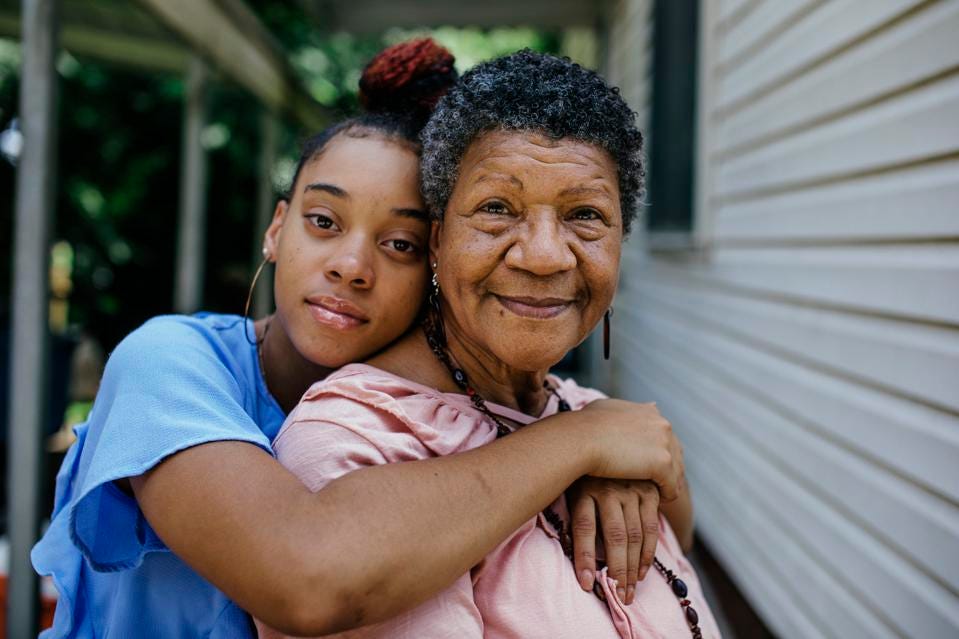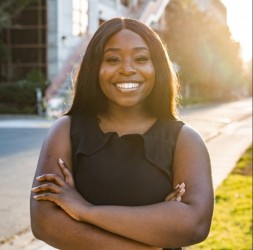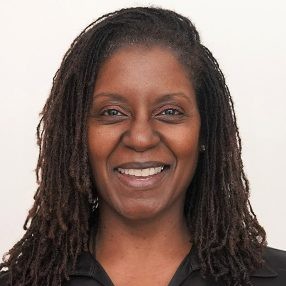
In the battle against systemic racism, the realm of global health is far from immune to its negative and often destructive impact. As Black communities remain disproportionately and deeply affected by racist policies and structures that obstruct their well-being and access to care, global health leaders like Bridgette Smith – a third-year PhD student at UC Davis – and Dr. Karen Lincoln – Professor of Environmental and Occupational Health and Director of the Center for Environmental Health Disparities Research at UC Irvine– are leading the charge to initiate the candid conversations centering diverse and often ignored members of Black communities and on-the-ground work that can strengthen care systems from the ground up.
Their work fighting for accessible care and systemic transformation among Black communities and populations across California (and beyond) has spanned several years and countless individuals.
 For Smith that impact also takes form through her work with the UC Global Health Institute (UCGHI) Black Lives Matter Task Force (BLMTF). She was invited to join the group as a student representative to create space to address how systemic racism has impacted the Institute and solutions to combat anti-Black structures across the UC system. Now, she is more deeply involved than ever, helping drive the conversation about what can be done to support and advocate for ongoing issues that impact Black communities and perpetuate racial disparities.
For Smith that impact also takes form through her work with the UC Global Health Institute (UCGHI) Black Lives Matter Task Force (BLMTF). She was invited to join the group as a student representative to create space to address how systemic racism has impacted the Institute and solutions to combat anti-Black structures across the UC system. Now, she is more deeply involved than ever, helping drive the conversation about what can be done to support and advocate for ongoing issues that impact Black communities and perpetuate racial disparities.
“The truth is, colonial and structural racism are embedded in so many of our systems,” she says. “Our team tries to answer the question of how we can be anti-racist in these systems.”
The history of global health is rooted in colonialism and white supremacy, and has had far reaching impacts from an overarching institutional level to the daily lives of people in local communities. Moreover, efforts to decolonize global health will not be effective if they entirely depend upon those who are receiving the most recognition and funding (namely, the predominantly white organizations and healthcare thought leaders who are dictating the global health agenda as a whole).
Smith is passionate about doing what she can to help mitigate this power imbalance, not only through her work with the BLMTF, but through her graduate research and efforts to drive engagement and conversations through the One Health Institute. In 2021, Smith and her colleagues won a grant for their “Try Harder, Be Better” project, which created workshops and conversations centered on uplifting the voices of Black Indigenous People of Color in global health and decentralizing the white supremacist structures that are built into DNA of global health since its formal inception. That same year, Smith moderated a panel on “Decolonizing Global Health” during the UC Global Health Day conference centering the voices of early career panelists as part of the expert ecosystem in global health.
 The cry to decolonize global health is the reason one of Lincoln’s most poignant projects has involved not only gathering health data from Black older adults, but inviting those same people to join her team as researchers and health educators.
The cry to decolonize global health is the reason one of Lincoln’s most poignant projects has involved not only gathering health data from Black older adults, but inviting those same people to join her team as researchers and health educators.
“I’m interested in raising the visibility of Black Americans to show our strengths and resourcefulness,” she says. “Too often, we see people comparing Black Americans to other racial groups rather than focusing on what makes us and our needs unique.”
Another way Lincoln is putting this mission into practice is through an in-progress study that looks at the impact of racial discrimination on gene expression.
The goal of the study is to explore how “racial discrimination accelerates the aging process in Black Americans by examining key molecular signals of inflammation and biological aging, and examine potential disruptors -- social support, negative social interaction, and cultural mistrust,” say Lincoln. Her team is hypothesizing that various biomarkers of inflammation, stress and genes associated with DNA damage and cellular aging will be higher in African Americans with frequent experiences of discrimination compared to those who report fewer experiences of discrimination.
She also proposes that positive social connections with family and friends along with cultural mistrust may serve as coping mechanisms and protective methods for African Americans that may disrupt the adverse effects of racial discrimination on the aging process”, according to Lincoln. Studies like this underlines the essential need for Black-led organizations and resources like the California Black Health Network and the UCSF Black Health Initiative both dedicated to centering Black voices and advancing the health of Black people.
Smith also recognizes that this work needs to be approached from the inside out.
“We have to acknowledge that not everyone is starting at the same point in their own social justice knowledge,” Smith says. “So, we need to make sure everyone has done some inward reflection and is aware of their own implicit biases. In order to understand outward challenges, you must understand yourself. It’s a challenge, yet an opportunity.”
She acknowledges that change cannot be achieved in a vacuum – as the work continues, more issues and injustices are still arising. Because the social, economic and political landscape is changing very quickly – it’s even more critical to focus on disseminating information to initiate action among policy makers and global health leaders and learners, along with community members and frontline advocates.
“The biggest way the public can support these efforts is by listening to those who are speaking through their lived experience,” Lincoln says. “We need to center and amplify the voices of these experts because their knowledge and wisdom come from their lived experience as Black people in America. And we can’t be episodic about it. We need to make it so that the voice never dims and it’s integrated into everyday policies – not just lip service.”
Smith echoed this sentiment, saying the most effective way the public can support the efforts of the Black Lives Matter Task Force and beyond is through conversation. From a University of California perspective, that starts with the student population. UCGHI welcomes students to join, engage or collaborate with the BLMTF. And on the faculty level, programs like the UC-HBCU Initiative facilitate collaborations between UC faculty and students and faculty at Historically Black Colleges and Universities across the country.
“I firmly believe that once one person in any field or specialty joins the conversation, they can take it into their communities and look inward within their own programs,” Smith says, referring to the collective reach of the UC system. “That helps us understand how we can spread conversations and thoughts across the state using our campuses with global programs.”
The almost nonexistent consideration of Black people, their wellbeing, perspectives and contributions in global health is evident. This is why establishing a culture of information sharing beyond titles, degrees and social-economic status is so crucial. Lincoln is deeply aware of this – although the COVID-19 pandemic presented major challenges to the way her team conducts their research, they were able to pivot their work toward collecting data on racial disparities – more specifically, why Black Indigenous People Of Color are more likely to get COVID than their white counterparts and who is more likely to make a full recovery. This information is something Lincoln and her team are incredibly passionate about sharing so that everybody can understand what they and the people around them need.
The work of Black global health leaders like Lincoln and Smith are helping to actualize the concept of “community care” as tangible act of decolonizing global health, which community organizer and researcher Nakita Valerio describes as "people committed to leveraging their privilege to be there for one another in various ways,” even when systems fail. It’s what drives Lincoln’s research model and empowers her to keep disseminating information and engaging community members through it all. It’s what inspires Smith’s active participation BLMTF and her graduate work that combines health equity with chronic and infectious disease infection. It’s what will ultimately will drive real and lasting transformation in communities that have experienced poor, limited and even denied the right to care.
“That’s what it’s all about,” Lincoln says. “For people to believe that in spite of all the times the system has failed them, change can still happen.”
*UCGHI wants to hear from you, particularly those of you who identify as Black. If you could build an ideal system, what would community care look like for you? Email us at ucghi@ucop.edu
